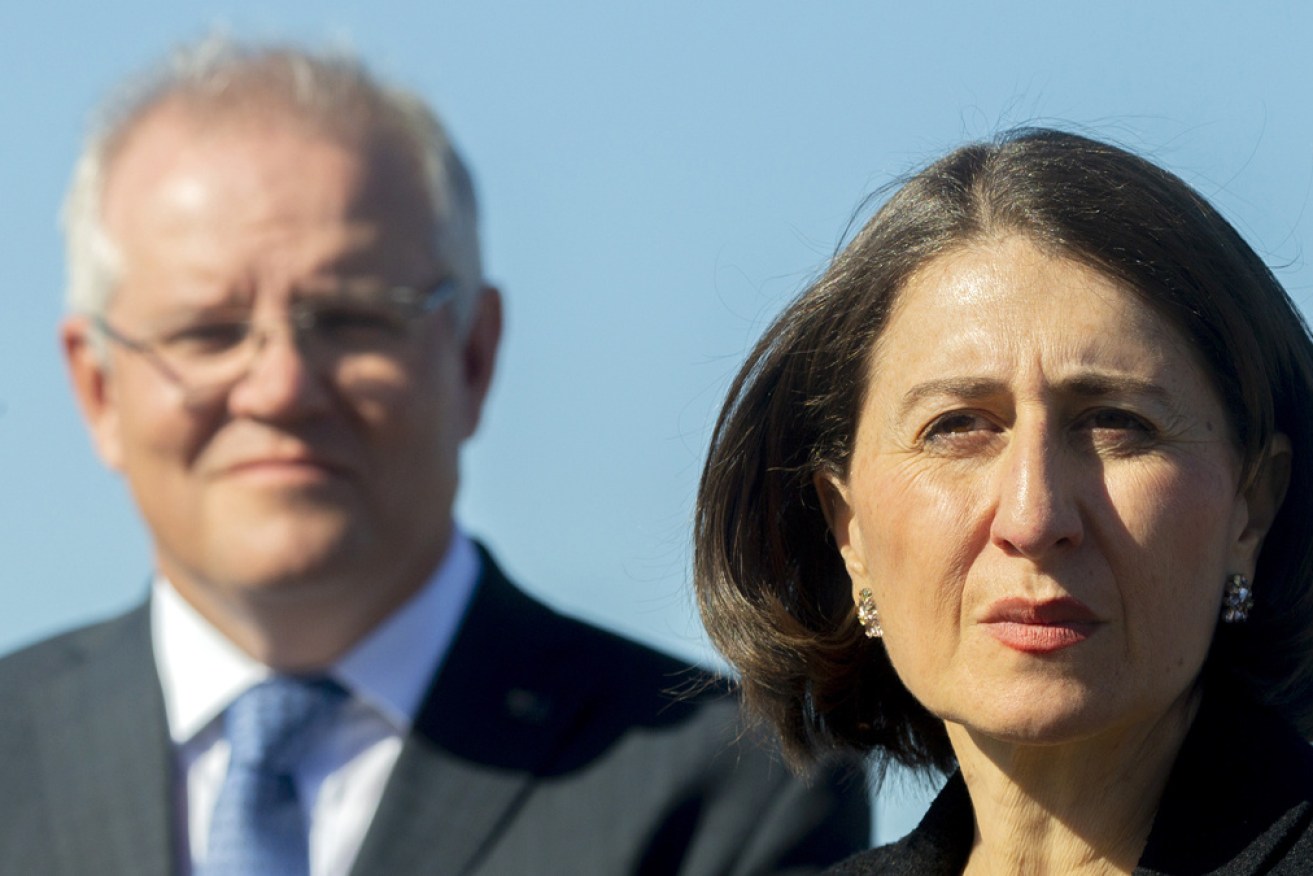Paul Bongiorno: Spectre of Berejiklian hovers over National Anti-Corruption Commission


Governments, past and present, are supposedly ‘committed to integrity, honesty and accountability’, Paul Bongiorno writes. Photo: AAP
The long-delayed findings against former New South Wales premier, Gladys Berejiklian that she was “seriously corrupt” have ironically proven a timely touchstone for the new National Anti-Corruption Commission.
The reaction of senior politicians in NSW and more particularly in Canberra to the Berejiklian outcome has prompted the NACC Commissioner Paul Brereton to set the record straight on the role of his integrity watchdog.
Brereton says the operation of the NACC is “an inflection moment when we can make an enduring difference to the ethics and integrity of the governance of the Commonwealth”.
He even laboured the point that he was not running a court of law but an investigative body applying standards of fairness, openness, transparency and accountability increasingly demanded by the Australian people.
Eroding public trust
Corruption – where private interest whether it be personal or party political – “erodes public trust in government and the institutions of state and undermines democracy”, he said.

Commissioner Paul Brereton says the NACC has already received more than 40 referrals.
“This is equally so whether it is done by those who are popular or those who are unpopular,” Brereton said, in an observation that sifts appearances from uncovered reality and tribal loyalties from partisan image massaging on show in the Berejiklian reactions.
It is surely a reality check for the alternative prime minister of this country, Peter Dutton who rejects the thorough investigation of Ms Berejiklian’s behaviour in the way in which she hid her intimate relationship with the former MP Daryl Maguire while at the same time indulging in pork barrelling to benefit him.
Reading ICAC’s carefully assembled case based on dozens of phone intercepts and the duelling accounts of the relationship given by both former politicians on oath is compelling and damning.
Misguided loyalty
Senior NSW Liberal Matt Kean, a long-time friend and factional ally of Berejiklian, says he believes his friend’s word given in evidence at the ICAC inquiry, something the commission could not do in light of the mountain of evidence before it.
This is surely misguided loyalty from Kean, if for no other reason than it undermines the very institution established to protect the public interest by keeping powerful politicians honest and accountable.
On Sunday morning, Dutton said he did not know “anybody of higher integrity than Gladys Berejiklian” and that a finding of “serious corruption” should only be made by a judge and jury.
Really?
Does the Opposition Leader not think that trashing ministerial standards, that every government, state and federal in Australia signs up to, is not a serious corruption?
Unethical behaviour doesn’t have to be in the criminal code before it is corrupt and corrosive, the point forcefully made by Commissioner Brereton.
Time to lift standards long overdue
And just a reminder that Berejiklian’s government in Sydney, like Morrison’s in Canberra and now Albanese’s was “committed to integrity, honesty and accountability” where ministers and assistant ministers “will observe standards of probity, governance and probity worthy of the Australian people”.

Independent MP Zali Steggall is astounded that senior Liberals “still do not get what integrity’’ in government means. Photo: Getty
No wonder two of the independents who now hold hitherto safe Liberal seats, Zali Steggall and Sophie Scamps were flabbergasted that Dutton and senior NSW Liberals “still do not get what integrity” in government means.
The Berejiklian government was probably only second to the Morrison government in raising pork barrelling to new heights or should that be lows.
The administration of round two of the $233 million Stronger Communities Fund was found to have been administered by the Premier and Deputy Premier ahead of the 2019 NSW election without any formal authorisation.
The resonances with “sports rorts” in Canberra and similar infrastructure funds administered by the federal Coalition can’t be missed.
Constitutional lawyer Professor Anne Twomey says politicians often defend their behaviour by claiming it is not illegal and that it’s all OK.
Well, the reality is, she says, it’s not OK and politicians should not be trying to turn what is essentially corrupt conduct into something that’s completely ordinary and utterly permissible.
Name and shame disincentive
Scott Morrison notoriously slammed ICAC for being a “kangaroo court” holding public hearings that damaged the premier he described as “gold standard”.
But the essence of integrity commissions is precisely to name and shame corrupt perpetrators as a disincentive for others to emulate the exposed behaviour.
These public hearings are invariably held only after the evidence has been accumulated and the commission believes serious corruption has been unearthed.
The Canberra commission has tighter guidelines of “serious and systemic corruption” where open hearings must be in the “public interest” and “exceptional circumstances”.
Some believe this is too restrictive.
Commissioner Brereton, however, says he will abide by the legislation and hold public hearings “where circumstances and the public interest justify an exception to the general rule that they be held in private”.
This would be no comfort to a prime minister who found themselves in a similar predicament to the former premier – by any measure an exceptional scandal.
Of more consolation to government ministers would be Brereton’s determination not to allow vexatious complaints politically “weaponising” his commission.
He says he will not hesitate to publicly condemn unwarranted referrals designed to damage reputations.
The NACC hasn’t got a moment to lose after years of disgraceful delay in establishing it.
Paul Bongiorno AM is a veteran of the Canberra Press Gallery, with more than 40 years’ experience covering Australian politics








